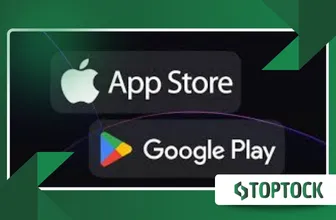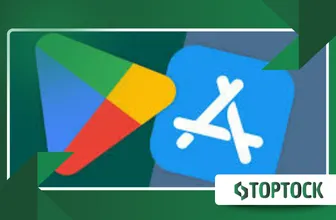Google Play vs App Store: Which Platform Is Winning the Game Battle?

The monumental battle between Google Play vs App Store has raged for well over a decade, shaping the entire mobile landscape.
Anúncios
From developers vying for visibility to users searching for the perfect app, the competition is fierce.
Both platforms stand as gateways to an interconnected digital world, but they operate on fundamentally different philosophies, each with its own strengths and weaknesses.
It’s a clash of titans, with Google’s open-source Android ecosystem and Apple’s meticulously curated walled garden.
The outcome of this rivalry doesn’t just impact these tech giants; it dictates what apps we use, how much we pay for them, and how developers earn a living.
Anúncios
The iOS Walled Garden: A Premium Experience
Apple’s App Store is a meticulously managed ecosystem, renowned for its strict quality control and user-centric design.
This approach has cultivated a reputation for security, polish, and a premium user experience.
The rigorous review process ensures that apps meet high standards for functionality, privacy, and performance.
This tight control also makes the App Store a lucrative playground for developers. Historically, iOS users have demonstrated a higher willingness to spend on apps and in-app purchases.
This trend makes the platform an attractive target for companies looking to monetize their creations. The seamless integration with Apple hardware creates a cohesive experience.
This closed model, however, can also be a double-edged sword. It means less flexibility for developers and a more rigid environment.
They must adhere to Apple’s strict guidelines and revenue-sharing models, which can be restrictive. The lack of sideloading options means users are entirely dependent on the App Store.
The Android Open Field: A World of Choice and Scale
Google Play, in contrast, thrives on the principle of openness and scale. The Android operating system’s open-source nature allows it to be adopted by a vast range of manufacturers.
This has resulted in a global market presence that far surpasses iOS in terms of sheer number of devices. Google Play offers a more flexible environment for developers.
They have more freedom to experiment with app distribution and monetization.
Read here: The Most Downloaded Games of the Year – What Makes Them So Popular?
For users, this openness translates to an enormous variety of apps and a wider range of pricing.
The ability to sideload apps from outside the official store also provides a level of freedom not found on iOS.
However, this freedom comes at a cost. The lack of stringent controls means that the platform can sometimes be more susceptible to malware and lower-quality applications.
The fragmentation of the Android ecosystem, with countless device models and operating system versions, can also pose a significant challenge for developers.
Market Share and Monetization: The Core of the Conflict
When we talk about which platform is “winning,” we must consider both market share and financial performance.
While Android devices dominate in terms of global market share, Apple’s App Store consistently leads in revenue.
This dichotomy is at the heart of the Google Play vs App Store debate. One platform wins in reach, the other in revenue.
Read more: Next Pokémon Presents Set for July – Here’s What to Expect
This is best illustrated by a look at consumer spending. According to a recent analysis by Sensor Tower, the App Store has maintained its lead in app revenue for years.
In the first half of 2024, worldwide consumer spending on the App Store was significantly higher than on Google Play.
his financial dominance is a powerful argument for Apple’s model, as it shows where the most valuable users are.
For many developers, the revenue generated from a smaller, but more affluent, user base on iOS can outweigh the sheer volume of users on Android.
| Metric | App Store | Google Play |
| Global Revenue (2024 H1) | ~$55 Billion | ~$25 Billion |
| Monetization Model | Premium Focus, High User Spending | Ads and Free-to-Play, Lower User Spending |
| Developer Revenue Share | 70/30 (can be 85/15) | 70/30 (can be 85/15) |
| Developer Flexibility | More Rigid Guidelines | More Freedom, Sideloading |

The Innovation Race and User Trust
Innovation isn’t just about new apps; it’s about the tools and features each platform provides to developers and users.
The competition drives both companies to constantly improve their offerings.
Apple’s focus on augmented reality (AR) with ARKit and its integration with a uniform hardware ecosystem provides a more consistent canvas for developers to build AR experiences.
++ Words of Wonders: Discover Hidden Words While Exploring the World
Google, with its vast user base and open-source approach, can rapidly iterate and deploy new features, often leveraging its massive data infrastructure.
The competition is a constant tug of war, with each side pushing boundaries.
In this struggle, user trust becomes a critical asset. Consumers are increasingly concerned about data privacy and security.
Apple has made this a central pillar of its marketing. Its privacy features, like App Tracking Transparency, have been a major point of differentiation.
Google Play is working to improve its own security measures, but the perception of a more open, and therefore less secure, platform lingers. In an era of data breaches, this perception matters.
The Future of the Google Play vs App Store Rivalry
The competition will not wane; it will only become more intense as mobile technology evolves.
The lines between the two platforms are beginning to blur, as both adopt features from the other.
Apple has introduced subscription models to encourage long-term user engagement, and Google has tightened its security protocols.
The legal and regulatory pressures on both companies are also a significant factor.
Governments around the world are scrutinizing the power of these app store duopolies, which could force changes in their business models.
Consider the analogy of a race between a Formula 1 car and a freight train.
he App Store is the Formula 1 car—sleek, fast, and meticulously controlled, winning the race for premium revenue.
Google Play is the freight train—massive, powerful, and carrying a tremendous amount of cargo (users) across the world. Each serves a different purpose and is incredibly successful in its own right.
So, is one winning the game battle? It’s not a zero-sum game. The very nature of this rivalry proves that innovation and a constant push for a better user experience are the real winners.
The rivalry of Google Play vs App Store isn’t about one knockout blow. It’s an ongoing contest of strategic moves, market adaptations, and technological advancements.
The question isn’t which platform will disappear, but which will adapt faster and more effectively to the ever-changing demands of a global audience.
So, when you see a new app launched, are you more likely to trust it on a meticulously controlled platform, or a more open and accessible one?
Your answer may just tell you which side of the battle you’re on.
Frequently Asked Questions
Which platform is better for developers?
The choice depends on the developer’s goals. If the focus is on revenue and reaching a higher-spending audience, the App Store may be the better choice.
If the goal is to reach the largest number of users, Google Play has a greater global reach.
Which of the two platforms has more apps?
Google Play has a significantly larger number of apps available, exceeding 3 million, while the App Store has a slightly smaller number, but with a focus on quality.
Which platform is more secure?
The Apple App Store is widely considered more secure due to its rigorous review process and closed ecosystem, which minimizes exposure to malware.
Google Play has implemented improvements, but the open nature of Android presents more risks.
++ Apple, Google ruled anticompetitive in Federal Court Fortnite fight










